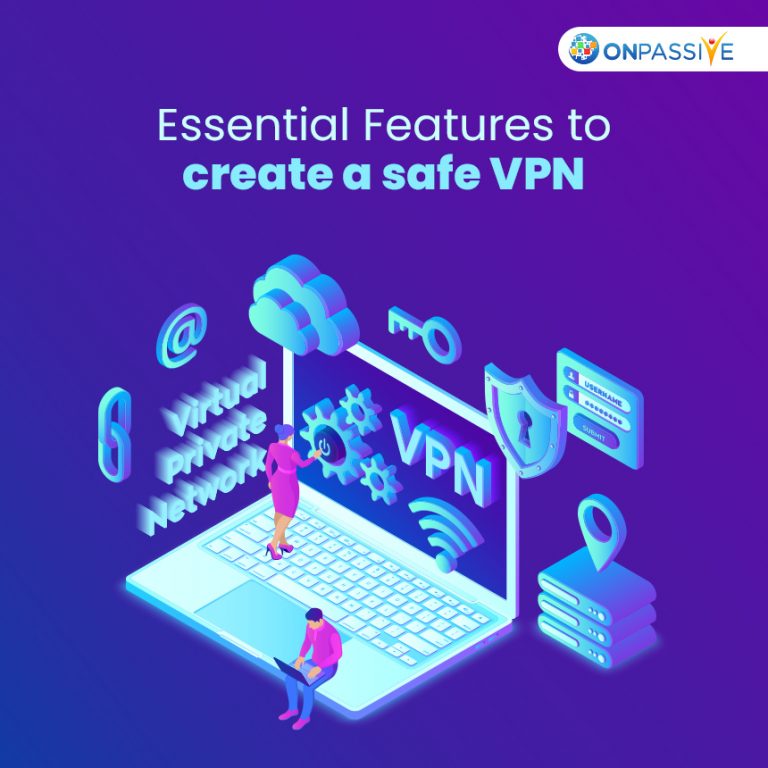
There is never enough privacy and security for a large amount of sensitive data in the present world of connectivity. There are few tools available that help to protect your sensitive online data. One of the popular tools for providing privacy and security on the internet is Virtual Private Network (VPN).
VPN creates an encrypted tunnel for your data and protects your online identity by hiding your IP address over less secure networks. VPN is the best option when using public Wi-Fi. With hackers having many methods to steal data on public hotspots with VPN, you can stop worrying about that.
A VPN application encrypts the data sent by you and decrypts the data you received for an added layer of security and protection. This encrypted data is also routed through servers, making it virtually impossible to track your traffic destination and source.
How does a VPN connection work?
To be able to use a VPN, the person needs to be authorized and also provide a security token or a password to the service provider. VPN connection is mainly used by people on their mobile phones in order to protect their data transmissions. It allows the users to perform any online activity while securing personal information and data from others.
A Virtual Private Network (VPN), in simple terms, allows users to connect their PC or Smartphones to another computer on the internet, allowing them to browse the internet on that connected computer. With VPN, users can also use the connection and IP address of other countries, enabling them to access some information restricted to that location while making users appear as if they are located there.
Essential Features to create a safe VPN
The Facebook data leaks and other issues resulted in the growing concern over internet security in recent years and led to the rise of laws that control data mining. People typically use VPN to safeguard their data against cyber snooping. Virtual Private Network (VPN) is a one-stop solution to protect your online privacy by providing anonymity and preventing ISP’s from tracking your online activity.
The first step to have a secure VPN is choosing the right VPN that suits your needs by considering the price tag. Once the price is checked, the next step is to consider a few must-have features to ensure you a safe and secure VPN.
The following are few essential features to create a secure VPN network:
- No- logs
A No-LOG VPN means that the network doesn’t log or collect any of the information or data transmitted through the network. This doesn’t save your personal details such as your search history, download history, and the sites you visited. This feature ensures your anonymity and online privacy is protected from everyone, including your VPN provider.
Even if a cybercriminal penetrates into a NO-log VPN, there wouldn’t be much information to find.
- No-IP address Leaks
The Virtual Private Networks (VPN) are meant to disguise or hide your IP address and block others from tracking your online activity. But in some cases, even VPN security flaws in your IP location can be revealed. Therefore, while choosing a VPN, make sure to choose the VPN that works explicitly on preventing leaks.
- Kill Switch
If suddenly your VPN connection drops, your internet access is automatically switched to a stable connection. A VPN kill switch feature will automatically quit the pre-selected programs when the connection becomes unstable, thereby reducing the chance of data leakage from sensitive programs.
- Multi-factor Authentication
The multi-factor security method will ask the users to prove their identity more than one way before signing in to your VPN account or a program. For instance, you need to type a password and then a four-digit authentication code sent through a text message to your mobile. This additional authentication ensures that only the right people can access your VPN by making it harder for people to track it.
Always choose the best VPN network with these essential features for the guaranteed safety and security of your online privacy.
Conclusion
With a reliable Virtual Private Network (VPN), it is safe for users to browse the internet and security provided by VPN is increasingly being used to prevent data snooping by major corporations or government agencies or the access of blocked websites. Therefore, individuals and businesses need to choose a best VPN network with reliable and trustworthy online privacy features and secure your sensitive personal data.


